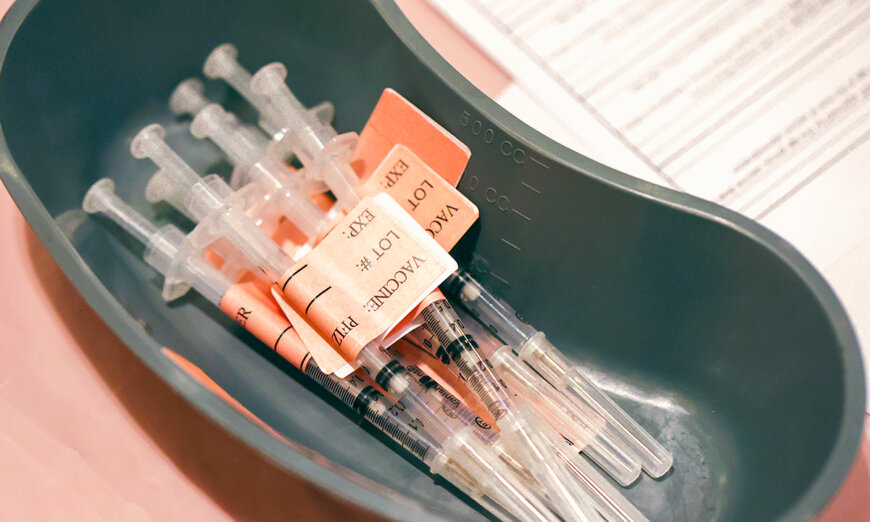COVID-19 Shot May Be Linked to Unexpected Vaginal Bleeding: Study
A new study implicates the COVID vaccine in incidences of abnormal bleeding among nonmenstruating women.
Norwegian scientists have discovered an unusual side effect in COVID-19-vaccinated women who don’t menstruate: atypical vaginal bleeding after injection with the Moderna and Pfizer vaccines.
About half of the bleeds were said to have occurred within the first four weeks of getting the vaccine. Postmenopausal women’s risk of bleeding was two to three times higher during the 28 days after injection than before receiving the shot. The link was stronger in perimenopausal and premenopausal women, with both groups showing a three- to fivefold elevated risk. Perimenopausal women are typically in their 40s and have begun experiencing some menopause symptoms but can still get pregnant, while premenstrual women have no menopause symptoms.
Researchers also found a difference in women’s susceptibility when given one shot over the other. Premenopausal women were at a 32 percent higher risk of vaginal bleeding after a dose of the Moderna vaccine than the Pfizer.
How Is Vaccination Linked to Bleeding?
Study author Kristine Blix and her colleagues at the Norwegian Institute of Public Health in Oslo drew from questionnaire data from an ongoing population health survey to investigate COVID-19 vaccines and unexpected bleeding in the three groups.
“We had already, from the early pandemic, biweekly questionnaires going out to cohort participants to monitor effects of the pandemic,” Ms. Blix told Nature.
Responses to the 2021 questionnaire indicated that some women experienced unusually heavy menstrual bleeding after receiving the vaccine. “This urged us to ask for bleeding patterns in a structured manner,” she said.
Ms. Blix’s team didn’t investigate the reasons for the unexplained bleeding, and no conclusive evidence supports that the shot caused it. However, one theory is that the SARS-CoV-2 spike protein used in the vaccines may be a culprit.
Additional Studies
A study published in February that examined close to 8,000 women found abnormal bleeding to be a common side effect of the Pfizer vaccine. Most women experienced excessive bleeding between their vaccination date and their next menstrual period, authors wrote in the paper, recommending further investigation into the events and the possible long-term consequences of vaccine-induced vaginal bleeding.
Possible Causes of Irregular Vaginal Bleeding
Irregular bleeding may be caused by several factors ranging from stress to more serious underlying medical conditions, including:
- Endometriosis.
- Pelvic inflammatory disease.
- Polycystic ovary syndrome.
- Primary ovarian insufficiency.
- Thyroid or pituitary gland disorders.
- Uterine or ovarian cancer.
Medications and pregnancy complications may also cause irregular bleeding. These include:
- Birth control pills.
- Medications including steroids or blood thinners.
- Miscarriages or an ectopic pregnancy.
- Surgeries, scarring, or blockages in a woman’s uterus, ovaries, or fallopian tubes.
FDA Still Recommends the Vaccine
On Sept. 11, the U.S. Food and Drug Administration (FDA) authorized an updated COVID-19 vaccine for emergency use—one “formulated to more closely target currently circulating variants and to provide better protection against serious consequences of COVID-19, including hospitalization and death.”
“Vaccination remains critical to public health and continued protection against serious consequences of COVID-19, including hospitalization and death,” said Dr. Peter Marks, director of the FDA’s Center for Biologics Evaluation and Research, in a press release. “The public can be assured that these updated vaccines have met the agency’s rigorous scientific standards for safety, effectiveness, and manufacturing quality. We very much encourage those who are eligible to consider getting vaccinated.”
This article has been archived for your research. The original version from Epoch Times can be found here.






